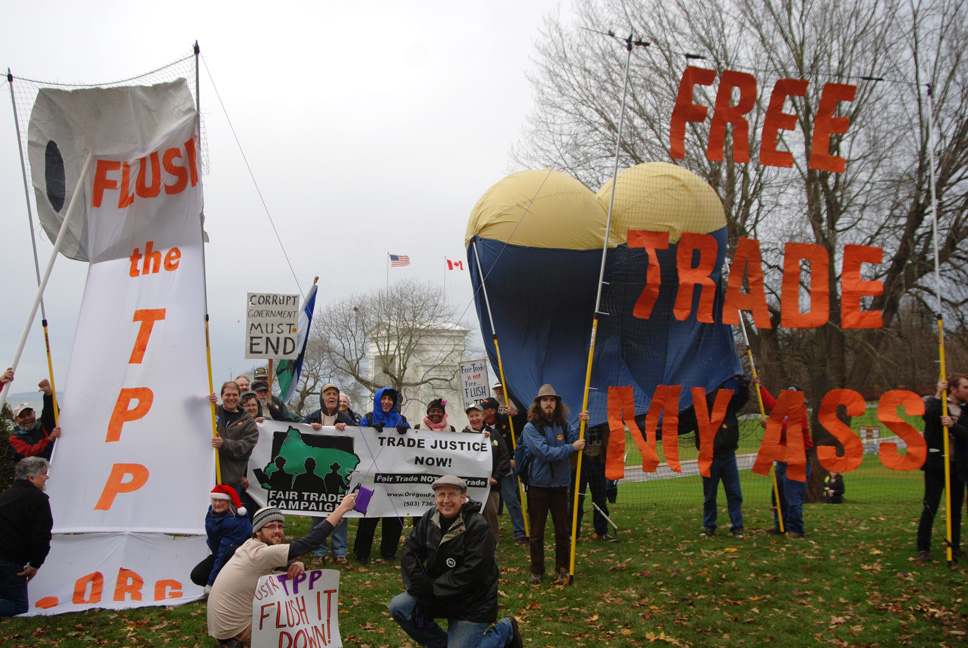The TPP is NAFTA on (insert performance-enhancing drug of choice here). That much we know. So what are we going to do about it?
In The Tyee, Raul Burbano (Common Frontiers), Kristen Beifus (Washington Fair Trade Coalition) and Manuel Pérez-Rocha (RMALC, Institute for Policy Studies) ask people across North America to help create a tri-national resistance movement against the TPP and other post-NAFTA free trade deals that “create rich people, not rich communities.” They show the NAFTA legacy for what it is — 20-years of growing inequality, precarity, income- and job insecurity, and environmental degradation, and shrinking expectations of “what people can do together for the common good.”
The trade justice activists, all members, like the Council of Canadians, of a new TPPxBorder c-oordinating group, write:
“Next generation corporate trade deals like the TPP and the proposed ‘comprehensive’ pacts that Canada, the U.S. and Mexico are pursuing with the European Union, purposely take away our ability to pursue alternative economic strategies. These deals are designed to ensure that governments have no power in the economy, and that they are only useful when they are using tax payer dollars to bail out large banks and other corporations.
“Like NAFTA, the TPP will handcuff our ability to set regulations in key areas like finance, industry, the environment, public procurement and fostering programs to create jobs at home,” they continue. “Free trade offers corporate subsidies for the rich and cut-throat competition for everyone else. So it should come as no surprise that communities across the continent and the Western Hemisphere are mobilizing in what can be expected as the battle against the TPP.”
The op-ed draws attention to the elephant in the room in the CETA (Canada-EU) and TPP negotiations, which is NAFTA. The North American Free Trade Agreement turns 20 on January 1, around the time the Obama administration hopes to conclude its trans-pacific deal. NAFTA contributed to increased trade flows between our three countries but this has not translated into an overall increase in shared wealth or well-being. Most people work harder and longer for as much money or less than what they were making 20 years ago. The new wealth from free trade is concentrating and congealing in the pockets of the 1 per cent.
The op-ed urges Canadian and U.S. trade activists in particular to see a potential July 2013 round of TPP negotiations as an opportunity to come together against unfair trade deals. To help with the organizing, endorse the tri-national unity statement against the TPP, and get more information about TPPxBorder visit tppxborder.org.




